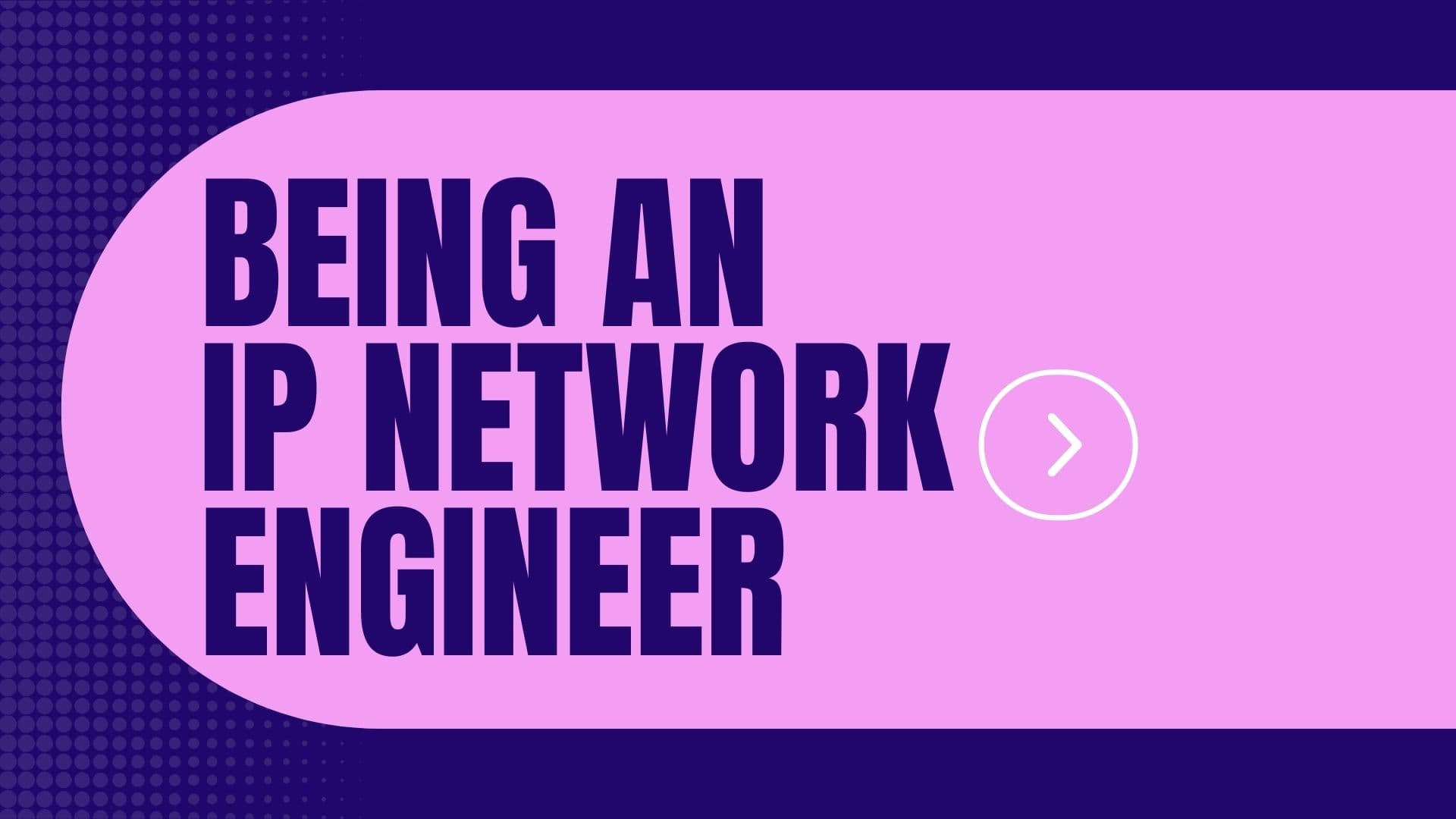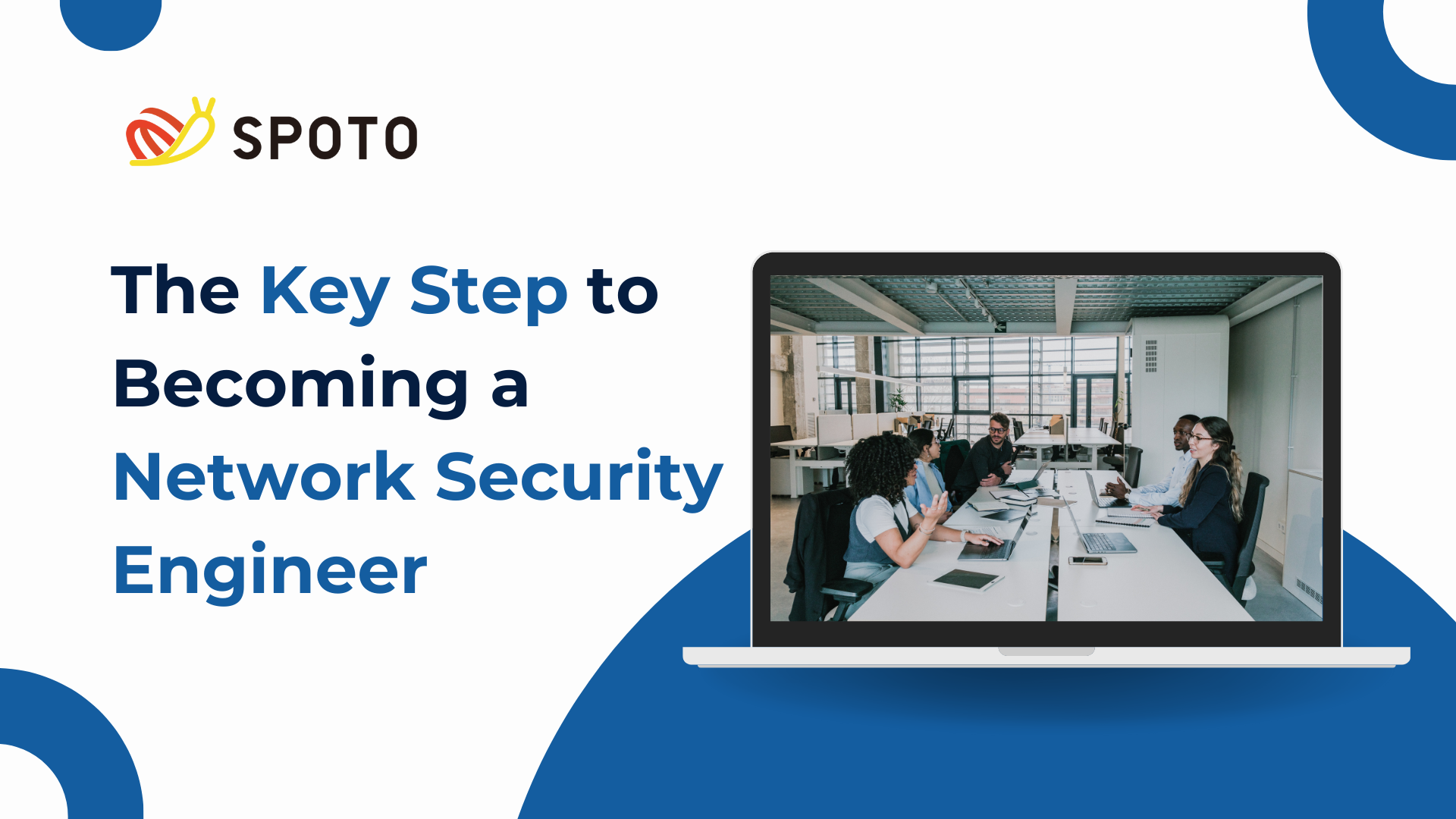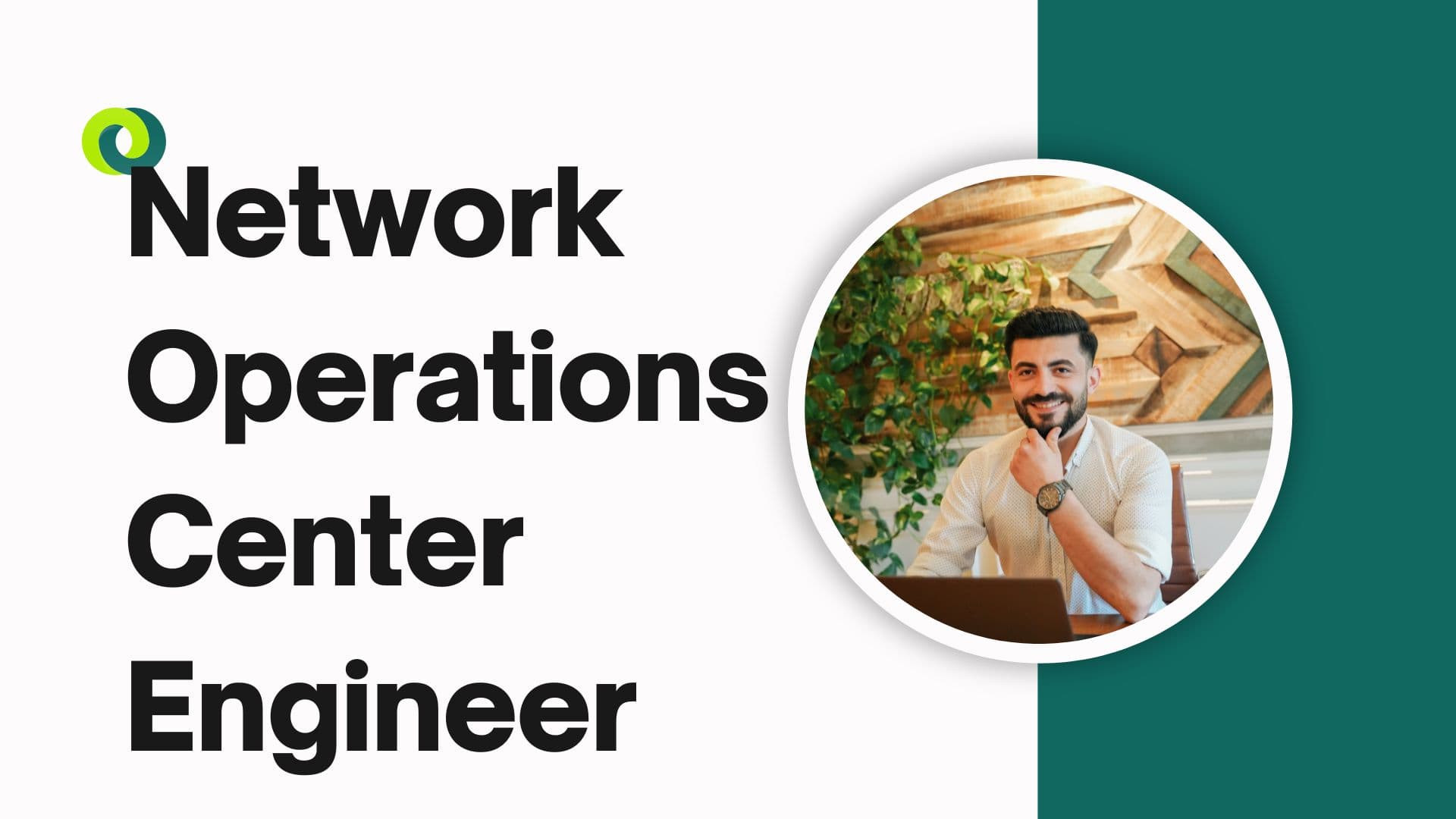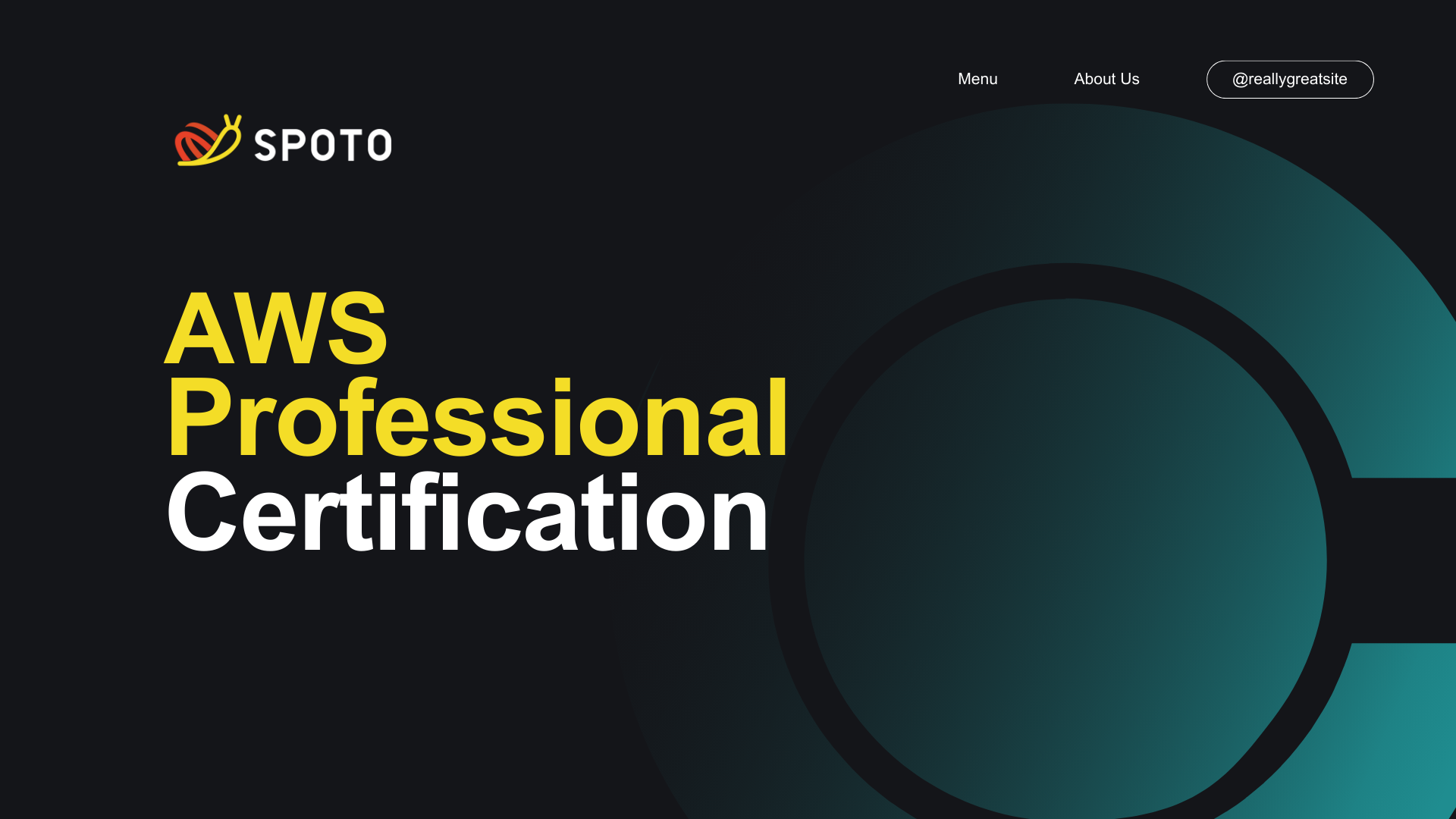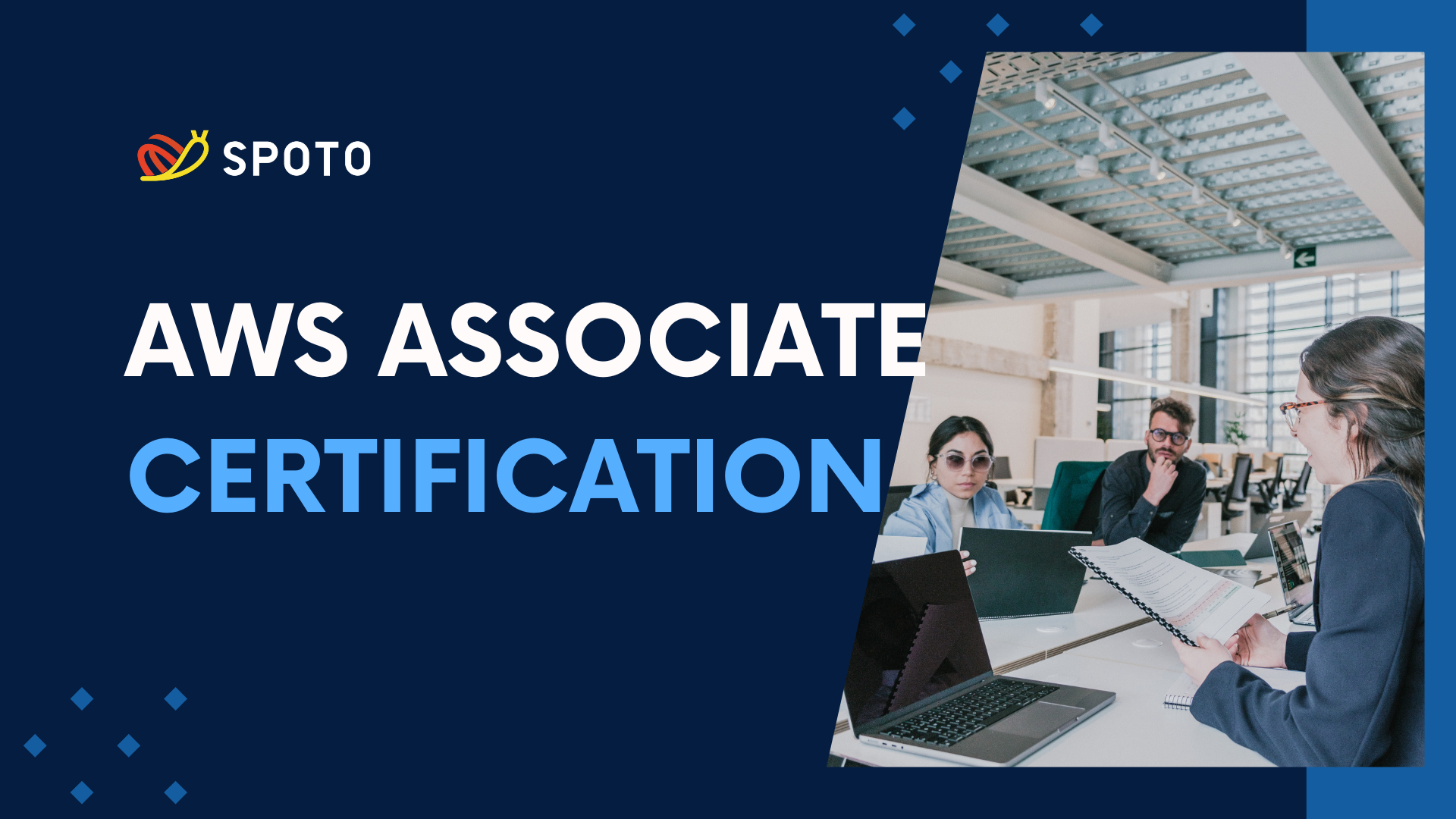TRUSTED BY THE SMARTEST TEAMS IN THE WORLD FOR CERTIFIED CANDIDATES
SPOTO Blogs
Useful learning materials to become certified IT personnel
-
- 1311
- SPOTO
- 2025-05-08 10:56
-
- 943
- SPOTO
- 2025-05-08 10:48
-
- 1170
- SPOTO
- 2025-05-07 14:16
-
- 1065
- Emma
- 2025-05-07 11:42
-
- 1138
- SPOTO
- 2025-05-07 10:15
-
- 975
- Emma
- 2025-05-07 09:42
-
- 788
- Emma
- 2025-05-06 14:45
-
- 657
- SPOTO
- 2025-05-06 11:50
-
- 790
- SPOTO
- 2025-05-06 10:51
TRUSTED BY THE SMARTEST TEAMS IN THE WORLD FOR CERTIFIED CANDIDATES
SPOTO Blogs
Useful learning materials to become certified IT personnel
-
- 1311
- SPOTO
- 2025-05-08 10:56
Table of Contents1. What is a Network Consultant?2. What does a Network Consultant do?3. Career Insights: Salary, Outlook & Related Roles4. What Are the Qualifications to Become a Network Consultant? 1. What is a Network Consultant? Network consultants are IT professionals who focus on the computer network systems of enterprises or organizations. They are mainly responsible for assisting in building, optimizing and maintaining organizational networks that meet business needs. They use their professional skills in network architecture and system integration to provide technical support and technical solutions to customers to ensure efficient and secure network operation. At the same time, network consultants are also committed to helping organizations grasp the latest technology trends, solve various information technology-related problems, and improve the foresight and stability of the overall IT architecture. 2. What does a Network Consultant do? Network Consultants work with teams to design and maintain network infrastructure that supports business operations, while expanding server capacity to ensure system stability and performance based on changes in online traffic. They also test network protocols, ensure secure and reliable connections between servers, regularly install new software, and upgrade and optimize existing systems. In addition, Network Consultants are responsible for employee training, writing deployment guides, and providing support services to end users. In terms of data management, they develop and implement data backup, archiving, and recovery strategies to ensure information security. By testing the efficiency of data transmission between various network devices (such as routers, modems, computers, and servers), they continuously optimize network performance and keep up with the latest technology trends to continuously improve the reliability and forward-looking nature of the overall network architecture. 3. Career Insights: Salary, Outlook & Related Roles (1) Network Consultant Salary According to data from the ZipRecruiter website on April 30, 2025, the average hourly wage for network consultants in the United States is $44.45, with a maximum hourly wage of $62.50 and a minimum of only $12.50. However, most network consultants in the United States currently earn between $38.46 and $49.76. (2) Job Outlook of Network Consultant The overall employment of computer support specialists is expected to grow 6% from 2023 to 2033, which is faster than the average growth rate for all occupations. It is expected that an average of about 62,700 new computer support specialist job vacancies will be added each year over the next decade. Many of these job vacancies are expected to fill those who change careers or exit the labor market (such as retirement). Network ConsultantAs one of the sub-occupations in this field, the employment outlook is also relatively optimistic. (3) Similar Occupations Network Engineer Network Analyst Network Architect Information Technology Consultant System Engineer Performance Consultant Quality Consultant Reporting Consultant 4. What Are the Qualifications to Become a Network Consultant? (1) Obtain a Bachelor's Degree Most network consultant positions require a bachelor's degree in a related field, such as Information Technology, Computer Science, Network Engineering, and Cybersecurity. At the same time, higher education and on-the-job training can also be beneficial to your career. (2) Develop professional skills Network consultants are mainly responsible for coordinating and solving network-related problems in an organization, so they need to master a wide range of professional capabilities. They usually have solid network architecture and deployment capabilities, are familiar with technologies such as LAN, WAN, virtual private network (VPN), and software-defined wide area network (SD-WAN), and can effectively manage server environments, including Windows and Linux systems. In order to ensure network security, they also need to have a deep understanding of firewall configuration and management, and have experience in cloud platform operations such as AWS, Azure, and GCP. In addition, proficiency in routing and switching technology, especially the use of mainstream equipment such as Cisco or Juniper, is also one of the necessary skills. In addition to technical capabilities, network consultants should also have good communication and collaboration skills, be able to clearly explain complex technical problems, have keen problem analysis and problem solving capabilities, and be able to assume project management responsibilities, effectively communicate with customers, coordinate and promote the implementation of solutions. (3) Earn Industry Certifications When applying for infrastructure engineer positions, it is helpful to obtain certain certifications as they can help you develop the key skills and knowledge required for the position and make your resume more noticeable to employers.Some employers prefer to hire candidates with experience in sales or a related technical field, such as engineering or IT strategy. The Cybersecurity Professional Certification demonstrates your expertise in defending against cyberattacks, responding to incidents, and cloud security. Obtaining this certification will allow you to better demonstrate your professional abilities in job applications. -
- 943
- SPOTO
- 2025-05-08 10:48
Table of Contents1. What is a Pre-Sales Engineer ?2. What does a Pre-Sales Engineer do?3. Career Insights: Salary, Outlook & Related Roles4. What Are the Qualifications to Become a Pre-Sales Engineer? 1. What is a Pre-Sales Engineer ? Pre-sales engineers are technicians who introduce and demonstrate the commercial features, technology and usage functions of products or services to customers or potential customers. They are responsible for fulfilling customer-facing duties and providing product solutions. 2. What does a Pre-Sales Engineer do? Pre-sales sales engineers need to have solid technical expertise, be able to have a deep understanding of the company's products and services, and be in-depth in industry trends and product technology development. Through communication with existing and potential customers, accurately assess their business needs and technical challenges, and develop personalized solutions accordingly. Good at building and presenting persuasive product solutions to fully demonstrate the advantages of products. At the same time, work closely with the product development team to ensure that the solution is highly technically aligned with customer needs. Provide pre-sales technical support, answer customer questions about functionality and compatibility, and assist in designing proof of concept (PoC) to verify the feasibility of the solution. Provide regular technical training to the sales team to enhance their product understanding and communication skills. In addition, be responsible for writing and maintaining various technical documents such as proposals, case studies, and specifications. 3. Career Insights: Salary, Outlook & Related Roles (1) Pre-Sales Engineer Salary According to data from ZipRecruiter's official website on April 30, 2025, the average annual salary for pre-sales engineers in California is $114,573, or about $55.08 per hour. This is equivalent to $2,203 per week or $9,547 per month. The highest salary is $182,577 and the lowest is $71,551. Most pre-sales engineers currently earn between $83,900 and $157,900, with the highest earners earning $173,695 per year in California. The average salary range for pre-sales engineers varies widely, which means there may be many opportunities for promotion and salary increases depending on skill level, location, and years of work experience. Data from the Glassdoor website shows that the expected total salary for pre-sales engineers in the United States is $180,171 per year, with an average annual salary of $115,333. The expected additional salary is $64,838 per year. Additional compensation may include cash bonuses, commissions, tips, and profit sharing. The top ten companies with the highest presales engineer salaries in the United States include Panzura, SonicWall, and ServiceRocket. (2) Job Outlook of Pre-Sales Engineer According to the U.S. Bureau of Labor Statistics, the employment of sales engineers (also including pre-sales engineers) is expected to grow 6% from 2023 to 2033, faster than the average growth rate for all occupations. It is expected that there will be an average of about 5,800 sales engineer vacancies each year over the next decade. Many of these vacancies are expected to fill positions for employees who change careers or exit the labor market (such as retirement). (3) Similar Occupations Solutions Consulting/Solutions Engineer Technical Sales Specialist/Representative Technical Account Manager Application Engineering/Systems Engineering Field Engineering Product Management/Customer Success Business Development Manager Inside Sales Specialist Sales Consultant 4. What Are the Qualifications to Become a Pre-Sales Engineer? To become a pre-sales engineer, you need to not only obtain a degree certificate in a related major during college, but also develop your professional skills and obtain certification. It is worth mentioning that human-computer interaction skills are the soft skills required for this position. The details are as follows: (1) Obtain a Bachelor's Degree Pre-sales engineers need a bachelor's degree in engineering or business or other related fields. Higher education is also encouraged. Majoring in or taking elective courses in marketing and communication is conducive to developing pre-sales capabilities, and participating in school-enterprise cooperation projects during school is also conducive to gaining practical experience while completing studies. (2) Develop professional skills In the workplace, pre-sales sales engineer positions often require product technical understanding, communication skills, the ability to provide product solutions, etc. If you have a professional and appropriate skill set in your resume, you will be able to leave a deep impression and attract the attention of employers. (3) Earn Industry Certifications When applying for infrastructure engineer positions, it is helpful to obtain certain certifications as they can help you develop the key skills and knowledge required for the position and make your resume more noticeable to employers.Some employers prefer to hire candidates with experience in sales or a related technical field, such as engineering or IT strategy. (4) Strong communication and interpersonal Although every position requires good communication skills, due to the special nature of the pre-sales sales engineer's job, that is, the need to interact with customers, colleagues, upstream and downstream suppliers, and technology providers, it is very important to understand the needs of all parties and communicate actively and effectively. The Cybersecurity Professional Certification demonstrates your expertise in defending against cyberattacks, responding to incidents, and cloud security. Obtaining this certification will allow you to better demonstrate your professional abilities in job applications. -
- 1170
- SPOTO
- 2025-05-07 14:16
Table of Contents1. What is an Ip Network Engineer?2. What does an Ip Network Engineer do?3. Career Insights: Salary, Outlook & Related Roles4. What Are the Qualifications to Become an Ip Network Engineer? 1. What is an Ip Network Engineer? IP network engineers specialize in the planning, construction, and maintenance of IP Ethernet systems within an enterprise or organization. Their duties include configuring, diagnosing and providing technical support for key network devices like routers, switches and firewalls as well as developing management tools so operations teams can receive timely technical assistance whenever required. 2. What does an Ip Network Engineer do? The IP Network Engineer is responsible for the following work: Conduct research and analysis to support the evaluation and recommendation of equipment, services, vendors and emerging technologies to ensure that they can effectively meet the business needs of the enterprise. Regularly update and maintain documents related to the enterprise IT environment to ensure the accuracy and timeliness of information. Respond to various system and network failures in a timely manner, and deeply participate in the root cause analysis (RCA) of network and application problems. Continuously manage and maintain the LTM and ASM module configurations of BIG F5 devices, and prepare for future GTM module deployments. Manage the system log server to record network events and changes to provide a basis for problem troubleshooting and root cause analysis. Continuously maintain and manage Cisco ASA firewalls. Work closely with project managers and business product owners to clarify the scope of work and key parameters of new projects. At the system level, ensure the completeness and accuracy of all relevant documents (including conceptual documents, logical documents and physical documents). Participate in the planning and design of network architecture, and collaborate with the development team to jointly promote the development and implementation of new technology solutions. 3. Career Insights: Salary, Outlook & Related Roles (1) Ip Network Engineer Salary According to data provided by Payscale, the average annual salary for network engineers is approximately $77,226. During the recruitment process, candidates with skills related to Cisco UCCE/IPCC telephone systems are particularly favored by employers. At the same time, the Glassdoor website shows that the average annual salary for this position in the United States is $111,556. Indeed's salary statistics show that the income range of IP network engineers is relatively wide, ranging from an annual salary of approximately $52,495 for IT support positions to an annual salary of approximately $107,254 for senior network engineers. Overall, this field has good prospects for job growth in the next few years, and practitioners will still be highly competitive in the workplace. (2) Job Outlook of Ip Network Engineer Employment of network and computer systems administrators is projected to decline 3% from 2023 to 2033, according to the U.S. Bureau of Labor Statistics. Despite the job losses, an average of about 16,400 network and computer systems administrator job openings are expected to occur each year over the next decade. All of these openings are expected to be filled by workers who switch careers or exit the workforce (e.g., due to retirement). (3) Similar Occupations Network Analyst Network Administrator or Specialist System Administrator Infrastructure Engineer Network Architect Network Technician Cybersecurity Engineer Technical Support Specialist IT Manager 4. What Are the Qualifications to Become an Ip Network Engineer? (1) Obtain a Bachelor's Degree Most positions require a bachelor's degree or higher. Applicants should have a degree in a related field, such as system administration, network security, and hardware. Electrical engineering and network engineering are popular choices, while computer science and information technology offer similar study opportunities. (2) Develop professional skills IP network engineers are technical professionals specialized in designing, creating and optimizing an organization's internal IP network. To do so successfully they must master protocols like TCP/IP, BGP and OSPF; be able to configure routers, firewalls and switches; diagnose network failures quickly; use monitoring tools like Python or Shell scripting; understand cloud network architecture as well as utilize automated scripting languages like Python and Shell; as well as be familiar with automated scripts such as Python or Shell as part of automated network monitoring solutions and comprehend cloud network architecture as part of modern IP network engineer's skillset - not only technical pillars but also instrumental forces ensuring secure operation of enterprise data communications. (3) Earn Industry Certifications When applying for infrastructure engineer positions, certifications can help develop key skills and knowledge necessary for success in the role. Achieve one in the IT field also shows employers you are qualified. Earning your Cisco Certified Network Professional (CCNP) Service Provider certification demonstrates your expertise in implementing core service provider network technologies such as architecture, services, networking and automation. Succeeding can open doors to career advancement as an IP Network Engineer. -
- 1065
- Emma
- 2025-05-07 11:42
Table of Contents1. What is a Network Security Engineer?2. What does a Network Security Engineer do?3. Why become a Network Security engineer?4. How to Become a Network Security Engineer? In the era of big data, cybersecurity engineers have become one of the most sought-after professions globally. 1. What is a Network Security Engineer? Network security engineers are professionals who are responsible for protecting enterprises' networks, systems, and data from cyberattacks, data breaches, and malicious activities. Through technical means and management strategies, they ensure the confidentiality, integrity, and availability of information systems. 2. What does a Network Security Engineer do? Network security engineers maintain and optimize organizational security infrastructures. Their responsibilities encompass deploying and validating new protective measures, developing system enhancement plans, troubleshooting security anomalies, and responding to cyber incidents. Plan and Maintain Specialists in this role administer the primary security mechanisms that protect enterprise assets from compromise. Beyond implementing protective measures, they design holistic security governance models and lead initiatives to maintain operational continuity during and after crisis situations. Monitor and Test The task of network security engineers involves evaluating the performance of security controls and compliance policies. They safeguard against any alterations that could compromise network security integrity. Moreover, they examine hardware and software for possible vulnerabilities and keep a close watch on backup and disaster recovery systems. Incident Response Network security engineers detect security incidents and take appropriate actions. They determine effective security strategies to enhance the incident response process and resolve emerging security problems. By implementing standardized defense protocols, they strengthen infrastructure resilience to ensure business continuity during cyberattacks or catastrophic events. 3. Why become a Network Security engineer? Love for Challenges and Continuous Learning The field of cybersecurity is full of dynamic changes, and new threats and attack techniques emerge every day. If you enjoy solving complex problems, analyzing attack patterns, and designing defense strategies, this profession allows you to constantly push your own limits. High Salaries and Broad Prospects According to reports, the global shortage of cybersecurity talent reaches 4 million. The supply-demand imbalance has led to a significant increase in salaries. Senior cybersecurity experts can earn up to $500,000 or even more. There are diverse career paths in this field. One can develop towards positions such as security architect or CISO (Chief Information Security Officer) or focus on emerging areas like AI security. Crucial to Corporate Security Cybersecurity engineers have a significant impact on any company. They are able to continuously identify and eliminate various cyber threats, ensuring that organizations maintain a healthy operational state in a digital environment fraught with risks. 4. How to Become a Network Security Engineer? Build a Strong Foundation Laying a solid groundwork is the first step towards becoming a network security engineer. A degree in Computer Science, Cybersecurity, or IT is helpful but not mandatory. Bootcamps and online courses (SPOTO) are good alternatives. Enroll in relevant online learning programs that cover topics like data structures, algorithms, and programming languages (Python, C++). These skills are essential as they form the basis for understanding how networks and systems function, which in turn is crucial for identifying and addressing security vulnerabilities. Study the basics of cybersecurity, including concepts like confidentiality, integrity, and availability, as well as common types of cyber threats and attacks. Earn Key Certifications Certifications play a vital role in validating your skills and knowledge in the field of network security. CompTIA Security+ is an excellent entry-level certification that covers a broad range of security concepts, including threats and vulnerabilities, as well as security technologies and policies. As you progress, the Cisco Certified Network Professional Security can be highly beneficial. Certifications not only enhance your credibility in the job market but also provide in-depth knowledge and skills that are directly applicable to real-world network security scenarios. Land Your First Job After building your skills and earning relevant certifications, it's time to start looking for your first job as a network security engineer. Begin by creating a strong resume that highlights your education, certifications, skills, and any relevant projects or internships. Look for entry-level positions such as junior network security analyst or security associate at companies, government agencies, or managed security service providers. Leverage online job boards, professional networking sites like LinkedIn, and career fairs to find job opportunities. Participate in Learning Forums or Communities Engaging in learning forums and communities is an ongoing process that can greatly enhance your growth as a network security engineer. Specialized forums such as SecurityFocus offer a wealth of knowledge and opportunities for discussion, where you can interact with experienced professionals, share ideas, ask questions, and learn about the latest industry news, emerging threats, and innovative solutions. Participating in online communities also allows you to stay updated on new tools, techniques, and best practices. Moreover, consider joining local cybersecurity meetups or user groups, where you can network with professionals in your area, attend workshops and talks, and collaborate on projects. This continuous learning and networking not only help you stay ahead in the field but also open up new career opportunities and professional relationships. If you aspire to become a senior network security engineer, don't hesitate. Enroll in the SPOTO training course immediately and start learning with us. -
- 1138
- SPOTO
- 2025-05-07 10:15
Table of Contents1. What is a Network Operations Center Engineer?2. What does a Network Operations Center Engineer do?3. Career Insights: Salary, Outlook & Related Roles4. What Are the Qualifications to Become a Network Operations Center Engineer? 1. What is a Network Operations Center Engineer? The Network Operations Center is a centralized location for networks that is maintained and monitored 24/7 by an IT team. Network Operations Engineers are experts in troubleshooting large computer networks,servers who work in network operations centers and are responsible for troubleshooting, network monitoring, and problem solving. 2. What does a Network Operations Center Engineer do? As a Network Operations Center(NOC) Engineer, you need to provide necessary technical support by continuously checking and maintaining servers. Your main responsibilities are as follows: First, use a variety of network monitoring tools to detect whether the performance of the computer network system is stable, find existing and potential network failures and take solutions. Secondly, in the process of troubleshooting and solving problems in the network system, it is necessary to coordinate and cooperate with colleagues, customers and third-party technology providers to jointly ensure the resolution of network problems. Furthermore, it is necessary to monitor and control all problems that arise, establish and save a database of historical problems, carefully track and record all defects and solutions in detail, so as to solve problems faster and continue software development Finally, network operations engineers need to use their in-depth understanding of information technology, including understanding of malware and security issues, to manage backbone networks and their interconnectivity. 3. Career Insights: Salary, Outlook & Related Roles (1) Network Operations Center Engineer Salary According to data from some reliable online recruitment websites, the annual salary of network operations engineers ranges from $67,043 to $115,020. According to data from the payscale website on March 25, 2025, the average base salary for network operations center (NOC) engineers is $69,417, with bonuses ranging from $1,000 to $10,000, and profit sharing ranging from $47,000 to $17,000. (2) Job Outlook of Network Operations Center Engineer Job demand for network operations center engineers is expected to grow 4% from 2022 to 2032, slightly faster than the average for all jobs in the U.S., with the potential for 10,200 new jobs added each year during that period, according to the latest data from the U.S. Bureau of Labor Statistics (BLS). (3) Similar Occupations Network Support Engineer Network Engineer / Network Administrator Systems Administrator / IT Operations Engineer Incident Response Analyst / IT Helpdesk Tier 2/3 Site Reliability Engineer (SRE) Telecommunication Engineer Cloud Operations Engineer / Cloud NOC Engineer 4. What Are the Qualifications to Become a Network Operations Center Engineer? (1) Obtain a Bachelor's Degree The majority of positions require candidates to have a Bachelor's Degree or higher. A reputable university will give you an edge in the job market. Network operations engineer positions typically require a bachelor's degree in a field such as network operations, computer and information technology, or engineering. These degrees provide the necessary foundation of expertise for the position. (2) Develop professional skills As a network operations engineer, first of all, you need to have a solid network foundation and rich operation and maintenance practical experience, and be able to efficiently monitor, maintain and optimize the network environment of enterprises or service providers. Secondly, you must be familiar with core network technologies such as TCP/IP protocol stack, VLAN, STP, BGP, OSPF, A+、CCNA、VMWare,and be able to independently complete the configuration and troubleshooting of switches, routers, firewalls and other equipment. Furthermore, you must be proficient in using network monitoring tools (such as Zabbix, Nagios, SolarWinds) to achieve real-time monitoring and alarm processing of network operation status. Finally, you must have certain automation capabilities and be able to use Python and Shell scripts to complete operation and maintenance task automation and log analysis. Familiar with common network security mechanisms, such as ACL, VPN, and firewall policy configuration, and have strong emergency response and problem location capabilities. (3) Earn Industry Certifications When applying for infrastructure engineer positions, it is helpful to obtain certain certifications as they can help you develop the key skills and knowledge required for the position and make your resume more noticeable to employers.Earning a recognized certification in the IT field helps employers recognize you as a qualified candidate.CCNP Service Provider validate your expertise in implementing core service provider network technologies, including architecture, services, networking, automation, and more. Earning the Cisco Certified Network Professional (CCNP) Service Provider certification can help you advance your career path as a network operations engineer. -
- 975
- Emma
- 2025-05-07 09:42
Table of Contents1. Overview of AWS Professional Certifications2. AWS Professional Certifications Breakdown3. Benefits of AWS Professional Certifications4. How to Prepare for AWS Professional Certifications5. Conclusion AWS certifications are among the most sought-after skills in the IT industry, and the AWS professional-level certifications are advanced credentials designed to validate in-depth expertise in AWS services. Earning one demonstrates your profound knowledge and hands-on experience in the field. However, it is recommended to pursue these certifications only after gaining at least 6 years of AWS experience to align with your career progression. 1. Overview of AWS Professional Certifications AWS Professional Certification is specifically designed for IT professionals with extensive hands-on AWS experience. And AWS Professional Level Certifications offer two distinct specialization paths: AWS Certified Solutions Architect Professional Certification (SAP-C02) AWS Certified DevOps Engineer Professional Certification (DOP-C02) 2. AWS Professional Certifications Breakdown AWS Certified Solutions Architect Professional Certification (SAP-C02) For candidates who have passed the Solutions Architect Associate exam, pursuing this professional-level certification is recommended to advance their expertise as a solutions architect. The assessment rigorously evaluates comprehensive mastery and in-depth application of all AWS services. Without hands-on project experience or practical training, passing this certification proves exceptionally challenging. Key Skills Validated: Requires a minimum of 2 years of hands-on experience in AWS design and architecture Demonstrates advanced cross-service integration capabilities across multiple AWS services AWS Certified DevOps Engineer Professional Certification (DOP-C02) The AWS Certified DevOps Engineer Professional Certification (DOP-C02) is specifically designed for IT professionals with advanced DevOps expertise and AWS cloud operations capabilities. Key Skills Validated: Minimum two years of hands-on experience in operating and maintaining AWS environments Familiarity with contemporary development and operations practices and methodologies Proficiency in coding with at least one programming language Practical experience in automating cloud infrastructure deployment Capability to configure metrics collection, logging systems, and monitoring solutions on AWS 3. Benefits of AWS Professional Certifications High-Value Credential The AWS professional-level certifications are among the most recognized credentials in the cloud computing industry, validating your expertise in designing, optimizing, and managing complex AWS architectures. Competitive Edge in Hiring Many companies explicitly require or prioritize candidates with professional certifications when recruiting for roles such as DevOps engineers or senior solutions architects. Salary Increase Professionals holding AWS Professional certifications earn 20%-30% higher salaries on average compared to their non-certified peers. In some regions, annual compensation can reach 150,000–200,000. Also, many employers offer additional bonuses or raises to certified employees as a recognition of their expertise. Personal Learning & Networking The certification preparation process compels you to identify and fill knowledge gaps, helping you build a comprehensive AWS expertise framework. Also, upon certification, you gain access to AWS-exclusive events, forums, and resources, enabling valuable industry networking opportunities. Enhanced Organizational Value Certain AWS Partner Network programs require companies to employ professionally certified staff to qualify for technical support or business incentives. Therefore, during cloud project bidding, the number of certified professionals on a team often serves as a key evaluation metric for technical competency. 4. How to Prepare for AWS Professional Certifications Understand Exam Blueprint Begin by reviewing the official AWS Professional Certification exam guide to identify key domains and focus areas for structured preparation. Select Targeted Training Opt for comprehensive programs like SPOTO's certification courses, which integrate theoretical instruction, practice exams, and hands-on lab environments. Develop Hands-on Expertise Utilize SPOTO's Solutions Architect and DevOps Engineer courses featuring video lectures, progressive assessments, and cloud-based labs for real-world scenario simulations. Study Core Documentation Analyze up-to-date AWS whitepapers and technical documents to master architectural best practices, security frameworks, and service implementation principles. Conduct Benchmark Testing Regularly complete timed practice tests to gauge knowledge retention, familiarize yourself with exam patterns, and build test-taking confidence. Iterative Preparation Correlate lab exercises with AWS service workflows, conduct gap analysis on weak areas, and adhere to a customized study roadmap. 5. Conclusion AWS professional-level certifications (including AWS Certified Solutions Architect – Professional and AWS Certified DevOps Engineer – Professional) serve as essential credentials validating core cloud computing competencies for IT professionals across various career paths. These certifications not only demonstrate your advanced proficiency with AWS services but also significantly enhance your professional competitiveness, leading to higher earning potential and superior career opportunities. Whether you aim to elevate your expertise in your current role or transition into cloud architecture, development, or operations, AWS Professional certifications represent a valuable investment in your career development. By maintaining focused study habits and combining theoretical knowledge with hands-on practice, you'll successfully pass the examinations and position yourself to capitalize on high-value opportunities in the digital transformation era. Should you have any questions, our support team remains available to assist you at any time. -
- 788
- Emma
- 2025-05-06 14:45
Table of Contents1. Overview of AWS Associate Certifications2. Associate Certifications Breakdown3. Benefits of AWS Associate Certifications4. How to Prepare for AWS Associate Certifications5. Conclusion AWS Associate Certifications are a set of credentials provided by Amazon Web Services (AWS) that confirm a person's fundamental to intermediate skills and knowledge in different AWS services and technologies. 1. Overview of AWS Associate Certifications To truly cement your status as an ecosystem authority and unlock higher income opportunities, AWS Certification delivers unmatched value. Amazon Web Services (AWS) offers three associate-level certifications, namely: AWS Certified Solutions Architect – Associate AWS Certified Developer – Associate AWS Certified SysOps Administrator – Associate Each certification by Amazon is designed with a particular job profile in mind. Which AWS Associate cert would be the best fit for my goals? 2. Associate Certifications Breakdown AWS Certified Developer - Associate is designed for software development professionals. This certification requires at least one year of hands-on experience in building, debugging, and optimizing cloud applications using AWS services. AWS Certified SysOps Administrator - Associate is targeting cloud operations engineers; this certification demands 1-2 years of practical AWS experience, including resource provisioning, system monitoring, and troubleshooting capabilities. AWS Certified Solutions Architect - Associate is ideal for cloud architecture professionals. Candidates should master AWS high-availability design principles and possess 1+ years of practical experience in building cost-optimized, elastically scalable systems. AWS Certified Solutions Architect – Associate The AWS Solutions Architect Associate certification is more suitable for IT professionals who have a proficient understanding of a wide range of AWS services and technologies. Key Skills Validated: Have expertise in AWS services covering computing, storage, and databases. Capable of deploying, monitoring, and managing resources on AWS. Familiar with the AWS Management Console, CLI, Well-Architected Framework, network configuration, and security solutions. Able to select appropriate AWS services based on technical requirements. AWS Certified Developer – Associate AWS Certified Developer – Associate focuses on skills related to developing, testing, and maintaining applications on the AWS platform. The AWS Certified Developer certification is an ideal choice for professionals aiming to build solutions on the AWS platform. Key Skills Validated: Design and optimize applications for AWS. Protect application code and data. Identify and resolve application issues. AWS Certified SysOps Administrator – Associate If you're a professional eager to work with AWS-built solutions, the AWS Certified SysOps Administrator – Associate certification is an ideal choice. It highlights deployment, management, and the smooth running of operations in AWS environments. Key Skills Validated: Knowledge of monitoring and metrics in AWS. Skills in designing fault-tolerant and highly available systems. Proficiency in troubleshooting and configuring IAM policies. 3. Benefits of AWS Associate Certifications Prove Your Expertise AWS Associate Level Certifications are the industry-standard validation of your AWS proficiency. This recognition is highly valued by employers, and recruiters prioritize AWS-certified candidates when they are hiring for IT positions. Master In-Demand Skills Securing an associate-level certification serves as a stepping stone to AWS specialty certifications. You can enhance your employer value by expanding your knowledge in areas such as machine learning, advanced networking and Alexa SkillBuilder, or data analytics. Power Your Side Projects an AWS certification, you can tackle ambitious projects that require robust server capabilities. Whether in machine learning, data analysis, or specialized domains, AWS skills elevate your project's potential. Unlock Lucrative Career Opportunities An AWS certificate opens the door to lucrative, sustainable career paths. As you earn additional certifications and deepen your expertise, you qualify for more advanced roles—boosting earning potential and securing a rewarding future. 4. How to Prepare for AWS Associate Certifications Review the Exam Blueprint AWS provides official exam outlines specifying the test domains and key knowledge areas, which help candidates focus their preparation effectively on the most critical topics. Gain Hands-on Experience Practical proficiency with AWS services is essential for exam success, so regularly working with core services like EC2, S3, and Lambda will build real-world competence. Enroll in Specialized Training Platforms like SPOTO offer tailored courses for each technical certification path, featuring hands-on labs and practice exams that simulate actual test conditions. Leverage AWS papers and documentation These resources provide in-depth insights into AWS best practices, including architecture frameworks and service-specific implementation guidelines for optimal cloud solutions. Engage with the AWS Community Participating in AWS forums and study groups yields valuable insights and support. 5. Conclusion AWS Associate Certification: Validate Your Cloud Expertise The AWS Associate certification serves as a critical benchmark for professionals to demonstrate their technical competencies in cloud computing. Covering core domains including architecture design, operational management, and security compliance, this certification helps credential holders stand out in the competitive IT job market. With structured learning and hands-on practice in real AWS environments, candidates can not only pass the exam but also build a strong foundation for pursuing advanced specialty certifications—unlocking high-value career opportunities in the era of digital transformation. It is advisable that you get fully ready, remain focused throughout, and accomplish your goals. For any concerns or questions, we're here for you and encourage you to contact us. -
- 657
- SPOTO
- 2025-05-06 11:50
Table of Contents1. What is a Cloud Engineer?2. Cloud Engineer responsibilities3. Career Insights: Salary, Outlook & Related Roles4. How to Become a Cloud Engineer? 1. What is a Cloud Engineer? Cloud technology allows companies to store and back up data more easily. Software updates can also be made on demand and customers are able to access their information using different devices. Cloud engineers are IT specialists who build and maintain cloud computing applications and infrastructure. You will be working behind the scenes as a cloud engineer to maintain these systems. Cloud engineers design and build IT infrastructures for businesses. They also establish cloud services to speed up and scale operations. 2. Cloud Engineer responsibilities The roles and responsibilities of a cloud engineer involve performing a variety of tasks on a daily basis. The responsibilities of a cloud engineer include, but are not limited to: assessing the security of an enterprise's network and the possible risks, uploading the enterprise's business information to the cloud computing platform and establishing a simple data retrieval mechanism, keeping abreast of the progress in the field of cloud computing, and providing the best cloud computing solutions for enterprises and customers, maintaining and storing the company's data information through cloud computing, working with network security and IT personnel to jointly solve problems related to cloud application failures or security vulnerabilities, creating and installing cloud computing solutions according to the requirements of customers or employers, automating specific system operations to improve efficiency and speed, developing, building and implementing cloud-based modular applications, regularly evaluating computer systems and providing performance enhancement recommendations, etc. 3. Career Insights: Salary, Outlook & Related Roles (1) Cloud Engineer Salary ZipRecruiter estimates that the average hourly wage of cloud engineers in the United States will be $62.89 on April 28, 2025. Hourly wages for cloud engineers can range anywhere from $87.26 to $23.56. However, most salaries are between $53.61 and $71.63 in the 25th percentile. Cloud engineers' average salaries can vary widely (up 18%). This means that there are many opportunities to advance and increase pay depending on the skill level, location and years of experience. (2) Job Outlook of Cloud Engineer Cloud computing has a bright future. According to the U.S. Bureau of Labor Statistics, cloud computing employment is expected to grow 15% between 2023 and 2033. This represents a faster-than-average growth in jobs. Each year, 356,700 additional job openings are predicted. This growth is driven by the increasing use of cloud services in businesses and the need for better ways to manage and analyze data. (3) Similar Occupations Cloud Architect DevOps Engineer DevOps Engineer Cloud Systems Engineer Cloud Consultant Software Engineer Systems Administrator Data Engineer Machine Learning Engineer Computer and Information Systems Manager Cloud Administrator 4. How to Become a Cloud Engineer? (1) Obtain a Bachelor's Degree The majority of positions require candidates to have a Bachelor's Degree or higher. A reputable university will give you an edge in the job market. The applicant should have a degree in a related field, such as cloud computing or information technology. (2) Develop professional skills Cloud engineers should have a deep understanding of Linux server architecture, maintenance and management, cloud database management capabilities, and master related technologies such as MySQL and Hadoop. At the same time, they should also have solid general programming skills and be familiar with mainstream programming languages ​​such as SQL, Java, Python, Ruby, Golang, PHP and .NET. In addition, cloud engineers also need to understand virtual networks and general network management functions, be proficient in containerization tools, have practical experience with Docker and Kubernetes, and be able to deploy and run applications in virtual machine environments. Besides, as cloud security gradually becomes the focus of service providers, cloud engineers should also have the ability to plan security policies according to the needs of service providers. Finally, in terms of web services and application programming interfaces (APIs), cloud engineers should understand common open standards such as XML (Extensible Markup Language), SOAP (Simple Object Access Protocol), WSDL (Web Services Description Language) and UDDI (Universal Description, Discovery and Integration), and master the design principles and implementation methods of APIs. (3) Earn Industry Certifications When applying for infrastructure engineer positions, it is helpful to obtain certain certifications as they can help you develop the key skills and knowledge required for the position and make your resume more noticeable to employers.Earning a recognized certification in the IT field helps employers recognize you as a qualified candidate.CCIE Data Center certification demonstrates your advanced skills in planning, designing, deploying, operating, and optimizing complex data center networks. Maximize the potential of a better connected world with the Cisco Certified Internet Expert (CCIE) Data Center certification. -
- 790
- SPOTO
- 2025-05-06 10:51
Table of Contents1. What is an IT Infrastructure Engineer?2. IT Infrastructure engineer responsibilities3. Essential Skills for IT Infrastructure Engineer3. Career Insights: Salary, Outlook & Related Roles4. How to Become an IT Infrastructure Engineer? 1. What is an IT Infrastructure Engineer? IT Infrastructure Engineers are involved in the design, construction, coordination and maintenance of an enterprise's IT architecture to ensure the secure operation of the company's internal network, collect data, develop and launch digital products, support its online stores, and achieve other business goals. 2. IT Infrastructure engineer responsibilities IT Infrastructure Engineers are responsible for a variety of tasks, including but not limited to: designing, maintaining and deploying network and servers infrastructure; monitoring and troubleshooting performance issues, configuring server hardware and software; implementing security measures, such as firewalls and authentication and encryption. They also prepare software and hardware documentation and monitor system and network performance indicators. 3. Essential Skills for IT Infrastructure Engineer IT Infrastructure Engineers need to have the following skills: Network and server management experience, familiarity with TCP/IP, DNS, DHCP and other network protocols, proficiency in the configuration of routers and switches from Cisco, Huawei and other manufacturers, firewall configuration and troubleshooting, proficiency in the use of network performance monitoring tools such as Nagios, Zabbix, SolarWinds, in-depth understanding of server hardware and software, excellent problem-solving and organizational skills, proficiency in the use of virtualization technologies such as VMware ESXi/vSphere, Hyper-V, KVM, etc. 3. Career Insights: Salary, Outlook & Related Roles (1) IT Infrastructure Engineer Salary ZipRecruiter data shows that as of April 28, 2025 the average annual salary in Los Angeles for infrastructure engineers is $136 915, or $65.82 an hour. This is equal to $2,632 a week or $11,409 a month. The highest salary among them is $196.107, and the lowest is $50,000104. However, most infrastructure engineers have salaries that range between $115.800 (25th centile) and $161.900 (75th centile), with the highest earners in Los Angeles (90th) earning $175.634. (2) Job Outlook of IT Infrastructure Engineer According to the U.S. Bureau of Labor Statistics, jobs in IT Infrastructure Engineer will increase by 4% between 2022 and 2032. This is the same growth rate as the average of all occupations. It means that those who are interested in a career with infrastructure engineering have good prospects. (3) Similar Occupations Network Engineer Cloud Engineer DevOps Engineer Solutions Architect Systems Engineer IT Project Manager IT Manager Technical Manager Security Engineer 4. How to Become an IT Infrastructure Engineer? (1) Obtain a Bachelor's Degree Most positions require applicants to hold a bachelor's degree or higher. Studying at a reputable institution will give you a competitive edge. Applicants should hold a closely related degree, such as electrical engineering, software engineering, computer science and information technology (IT) or other related fields. (2) Develop professional skills It is important to have the necessary skills to be a successful infrastructure engineer. This will allow you to demonstrate your abilities to potential employers and improve your chances of advancement. Consider looking for internships to gain valuable experience while you study for your undergraduate degree. Consider internships with software and information technology companies. (3) Earn Industry Certifications When applying for infrastructure engineer positions, it is helpful to obtain certain certifications as they can help you develop the key skills and knowledge required for the position and make your resume more noticeable to employers.Earning a recognized certification in the IT field helps employers recognize you as a qualified candidate.CCNP Enterprise Certification demonstrates expertise in enterprise infrastructure and security. The Cisco Certified Network Professional Enterprise (CCNP) certification allows you to configure, manage, and troubleshoot networks for some of the largest companies in the world, boosting your career as an IT Infrastructure Engineer.







